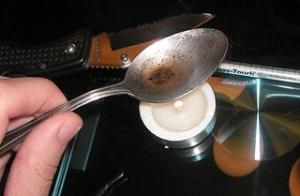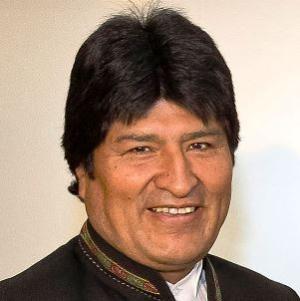Banning new psychoactive substances such as Spice ("fake marijuana") or "bath salts" (a euphoric stimulant) isn't working that well. Is there another way?
The White House emphasizes public health in its new heroin initiative, but it's still relying on a heavy law enforcement component.
Ohio will be the next state to vote on marijuana legalization.
There's a union corruption scandal brewing in California, medical marijuana faces awkward transitions in Oregon and Washington, and more.
A DARE cop gets popped for ripping off the program, another jail guard goes down, a federal cop gets busted after his meth lab explodes, and more.
Ohio could be the next state to legalize marijuana, a union boss gets busted for taking bribes from dispensaries, "fake weed" is the subject of repression in Boston and New York state, Maine's welfare drug test program finds a single drug user, and more.
CBD cannabis oil goes on sale in England, a medical marijuana initiative is getting underway in Wyoming, the Justice Department will look into the police killing of teenager Zach Hammond in a small-time marijuana bust, and more.
It's big bucks for the Colorado marijuana industry (and the state's tax revenues), there's more initiative news, the White House takes on heroin, Peruvian coca farmers are feeling the pinch of eradication, and more.
A Wisconsin tribe may legalize marijuana, Ohio foes line up against the legalization initiative there, more Washington state dispensaries will be forced to close, a Utah SWAT reporting law shows what those squads are up to -- and it isn't hostage situations or "active shooters" -- Bolivia has reduced coca growing for another year in a row, more.
Another controversy over the ResponsibleOhio legalization initiative, medical marijuana could be coming to the northern prairie, a British parliamentary panel calls drug use a human right, and more.
This story was written in collaboration with AlterNet and first appeared here.
In recent years, we've been inundated with wave after wave of media panics over strange new drugs. First came "fake weed" (or as NYPD Commissioner Bill Bratton called it last week, "weaponized marijuana"); then came "bath salts," with the infamous face-eating episode that wasn't; and most recently, "flakka," labeled as "$5 insanity" by one media outlet.

mephedrone (wikimedia.org)
These new (to the recreational drug market) substances mimic the effects of currently illegal drugs, such as marijuana, cocaine and amphetamines, or ecstasy. The states and Congress have rushed to address the drugs by prohibiting them, but that has proven to be a game of cat and mouse, with innovative chemists and manufacturers replacing banned drugs with new variants faster than politicians can act.
"In recent years, lawmakers have moved to ban wave after wave of NPSs, only to see more emerge," said Grant Smith, deputy director of national affairs for the Drug Policy Alliance. "All 50 states have passed laws against synthetic cannabinoids and cathinones, and federally, there are 26 unique compounds under Schedule I. And the DEA, which has legal authority to criminalize drugs administratively, has banned more than two dozen. These laws take time, which allows manufacturers to create new compounds."
Not only is the prohibitionist reflex ineffective, it arguably increases the harms associated with the use of these drugs. But to ignore them or ban them aren't the only policy choices, and some advocates are calling for these novel substances to instead be controlled and regulated. One model they point to is New Zealand, which instead of banning "legal highs," moved to regulate them in 2013.
New Psychoactive Substances
Before turning to policy options, though, it's worth a moment to figure out just exactly what we're talking about when we talk about "new synthetic drugs," and why maybe that isn't the best term to use to describe these substances.
In a conference call organized by the Drug Policy Alliance, which advocates for regulation over prohibition, Earth and Fire Erowid, the administrators of the Erowid drug information web site -- "Documenting the complex relationship between humans and psychoactives" -- tried to bring some rigor to a domain where science too often gets lost in the distortions of moral panic.
"Synthetic drugs is a term used to imply scary new street drugs," said Earth Erowid. "But nearly all pharmaceutical drugs are synthetic, whether they're cannabinoids, opioids, stimulants, or sedatives. You don't want to use the phrase 'synthetic drugs' unless you're talking about every pharmaceutical developed over the past 50 years."
"A more accurate and appropriate term is "new psychoactive substances," he said. "That's the standard term in Europe."
NPSs can be grouped into some general categories, based on the effects they seek to replicate, the Erowids said:

synthetic cannabinoids (wikimedia.org)
Replacement Euphoric Stimulants. These include cathinones like methedrone, MDPV ("bath salts"), and Alpha PDP ("flakka"), as well as compounds related to Ritalin.
Replacement Psychedelics. The best known are the NBOMe series ("N-Bomb"). They are often distributed on blotters, and many people who think they're buying LSD are getting this. The NBOMe class has been linked to about 20 deaths.
Replacement Dissociatives. These are PCP-like chemicals, including various ketamine variants and methoxetamine.
Replacement Opioids. These include chemicals such as AH 7921 and U4770.
The Drug Policy Alliance has a similar, if not quite identical, taxonomy here.
The deaths and other adverse reactions that have been linked to NPSs have occurred under regimes of either prohibition or its opposite -- no regulation. "Legal highs" were just that, NPSs yet to be banned but lacking any sort of reliable labeling or quality control. Many formerly "legal highs" are now illegal, but the harm continues, and new NPSs continue to come on the market, legal until the politicians get to work.
"There's a reason for that, said Earth Erowid. "People are looking for legal replacements for illegal drug effects," he explained. "Most people simply want a stimulant or a psychedelic, and they're willing to try anything if it's legal."
"That may hold true for "fake marijuana" users than other NPS users," said Joseph Palamar, an assistant professor in the Department of Population Health at New York University's Langone Medical Center.
"Synthetic marijuana users have different profiles from other NPS users," he said "They are resorting to using it as a legal replacement for marijuana as a means of avoiding arrest, especially minorities. Other NPS users, especially clubbers and ravers, may be taking them unwittingly, Palamar added, pointing a finger especially at "Molly," which is supposed to be pure MDMA in powder form, but often isn't.
"Molly is the biggest system of unintentional NPS use that ever came around," said Palamar. "A lot of the drug users, especially Molly users, are unknowingly taking NPSs.
(The Erowids helpfully pointed out that there are a number of web sites where users can submit their Molly for testing, including one they run at EcstasyData.org.)

What's in your ecstasy tablet? (pillreporter.org)
Roger Goodman, chairman of the Washington state House Public Safety Committee and senior member of the Judiciary Committee, said that legalizing weed is a start.
"By legalizing marijuana, we have no problem with synthetic marijuana," said Goodman. "No one wants to use that. We have a rational regulatory approach. Prohibition is in the past for us. Marijuana is a good first step for us. We know better than to impose prohibition and outlaw any particular substance."
Legalizing marijuana more widely could put a real dent in the synthetic cannabinoids market, but there is no immediate prospect for legalizing drugs such as meth, cocaine, and the psychedelics and putting a dent in the market for other NPSs that way. That means if we're not going to prohibit them and we're not going to ignore them, we're going to have to regulate them.
That's what New Zealand did with its 2013 law, which transformed unregulated "legal highs" into regulated "legal highs" sold with labels at established stores. Drug makers were required to submit their products for testing and labeling before they could be approved for legal sale.
"I really look to the New Zealand law," said Goodman. "It provided for licensing and testing, and it got rid of the criminal actors. It seemed like a very rational way to go."
"That model would encourage manufacturers to make safer products," DPA's Smith concurred.
But, alas, the New Zealand law is no more. It was overturned and replaced with a more prohibitionist retrenchment a year later amidst complaints that drug users were getting high and hanging around the dope shops like winos in front of liquor stores. That is a lesson for legalizers (or regulators) here. Not only are progressive drug reforms difficult to enact, they also sometimes require a strong defense.
back to top
This article was produced in collaboration with Alternet and first appeared here.
The White House Monday announced a new initiative to combat heroin that will pair law enforcement and public health in what it called a bid to shift the focus of the fight from punishing drug addicts to treating them. Under the plan, drug intelligence officers will work with public health officials to track heroin supplies, how it gets to street-level dealers, and how and where it's getting cut with sometimes deadly adulterants.
The initiative has won support from some elected officials in states hard-hit by rising levels of heroin use and heroin overdose deaths. But drug reform advocates called it "one step forward, two steps back."
Under the plan, announced today as part of a High Intensity Drug Trafficking Areas (HIDTA) funding program by the Office of National Drug Control Policy, $5 million will go to "a broad range of efforts that will reduce the trafficking, distribution, and use of heroin," with half of that funding a Heroin Response Strategy involving an "unprecedented partnership" of five HIDTA programs -- Appalachia, New England, Philadelphia/Camden, New York/New Jersey, and Washington/Baltimore -- to fight smack.
Another $4 million in HIDTA funds will go toward prevention in 18 HIDTAs, including programs that feature "key partnerships between law enforcement agencies and their counterparts in public health and education," the announcement says. Another $1.3 million will go to five Southwest border HIDTAs "to enhance investigational efforts" against the Mexican trafficking organizations supplying most of the nation's heroin.
"The High Intensity Drug Trafficking Areas program helps Federal, state, and local authorities to coordinate drug enforcement operations, support prevention efforts and improve public health and safety," said ONDCP head Michael Botticelli. "The new Heroin Response Strategy demonstrates a strong commitment to address the heroin and prescription opioid epidemic as both a public health and a public safety issue. This Administration will continue to expand community-based efforts to prevent drug use, pursue 'smart on crime' approaches to drug enforcement, increase access to treatment, work to reduce overdose deaths, and support the millions of Americans in recovery."

Branded heroin packet from New Jersey (NJ State Police)
The funding will pay for 15 drug intelligence officers and 15 health policy analysts to work within the
HIDTA programs. The narcs will gather information on trafficking patterns and trends and feed it to street-level law enforcement. The health policy analysts will increase overdose monitoring, look for dope cut with dangerous adulterants, and train first responders on how to use the
opioid overdose reversal drug
naloxone.
The announcement comes amidst rising clamor over heroin's comeback and increasingly lethality in recent years. While the causes of the increase in heroin use are multifaceted and debatable, the reality of it doesn't seem to be. According to the Centers for Disease Control in a report released last month, more than half a million people were using heroin in 2013, up 150% from 2007.
The number of heroin overdose deaths is climbing even faster. The CDC reported that fatal overdoses hovered around 2,000 a year in the early 2000s before doubling to around 4,000 in 2011, and then doubling again to 8,257 two years later in 2013.
The sound of more federal funding is music to the ears of politicians in states like New Hampshire, which saw more than 300 heroin overdose deaths last year and where Republicans and Democrats are squabbling over how much money to spend on drug treatment. Elected officials across the political spectrum had kind words for the initiative Monday.

People lining up to score in Chicago. (Chicago PD)
"While the announcement of additional federal support for New England is an important first step, we must see these resources move as quickly as possible and we will need continued engagement from our federal partners to help combat this pressing public health and safety challenge," said
Gov. Maggie Hassan (D).
"Stemming the tide requires investments in prevention, treatment and recovery, and broad cooperation at the federal, state and local levels," said US Senator Jeanne Shaheen (D).
"Today's announcement is welcome news for New Hampshire and other New England states that are confronting this crisis," added US Senator Kelly Ayotte (R). "We must take a multi-pronged approach in this fight, and prevention is a key part of that."
But the Drug Policy Alliance (DPA) took a more skeptical view.
"Half of what they're doing is right -- the focus on health and overdose prevention -- but the other half, the side that focuses on the failed arrest and incarceration policies of the past is destined to ruin lives and fail," said Bill Piper, director of the group's office of national affairs.
DPA took particular exception to the use of the HIDTA program as a vehicle for addressing heroin use, noting that even though its mandate was originally to focus on high-level drug traffickers, its programs "lack congressional oversight and generally waste resources pursuing individuals engaged in low-level drug crimes."
HIDTAs came into being in 1988, with five being created to focus on "top priority" areas. But since then, the HIDTA program has swollen to 28 different regional HIDTAs covering more than 60% of the US population, including such major drug trafficking hotbeds as South Dakota and Wyoming.
And, thanks to Congress, since 1998, no HIDTA money can be spent on drug treatment. DPA and other advocates have pointed out that this statutory ban reduces program flexibility and access to treatment, and have called on Congress to repeal the ban, eliminate the HIDTA program altogether, or move it out of the White House and into the Justice Department and merge it with the Organized Crime and Drug Enforcement Task Force as the Bush administration once proposed.
If the Obama administration wants to really address drug use as a public health issue and not throw away more money on failed drug war policies, DPA had some suggestions:
- "Shifting federal resources from enforcement and incarceration to treatment and public health program funding to save more lives and realize substantial savings for taxpayers. The federal government's drug control budget has increased exponentially throughout the years. Despite a recent change in rhetoric, the federal government still focuses the vast majority of its drug-related spending on interdiction, enforcement and incarceration.
- "Committing more federal investments into naloxone access, overdose prevention, and greater access to methadone and buprenorphine and other forms of evidence-based treatment.
- "Funding community-based initiatives such as Law Enforcement Assisted Diversion that reduce barriers to drug treatment and other health services.
- "Removing barriers to methadone and other forms of medication assisted treatment in military treatment facilities that care for active duty and veterans.
- "Investing more funding into making overdose prevention and medication assisted treatment available to incarcerated individuals who are at elevated risk of substance use and overdose.
- "Eliminating federal legal barriers to research trials for supervised injection facilities and heroin assisted treatment."
back to top
This article was published in collaboration with AlterNet and first appeared here.
Ohio Secretary of State Jon
Husted announced Wednesday afternoon that the
ResponsibleOhio marijuana legalization initiative has qualified for the November ballot.
Husted reported that the initiative campaign had collected 320,267 valid voter signatures; it needed 305,000 to qualify for the ballot.
The initiative is controversial for creating a "monopoly" of 10 allowed commercial marijuana grows, and those spots have already been allocated to people who funded the campaign.
The initiative would also create a system of licensed marijuana processing facilities and retail outlets. And it would allow individual Ohioans to grow and possess small amounts of marijuana.
"It's time for marijuana legalization in Ohio, and voters will have the opportunity to make it happen this November -- we couldn't be more excited," said ResponsibleOhio spokesman Ian James after Husted's announcement. "By reforming marijuana laws in November, we'll provide compassionate care to sick Ohioans, bring money back to our local communities and establish a new industry with limitless economic development opportunities."
Look for extensive coverage of the initiative and the campaign from the Chronicle in coming days and weeks. In the meantime, check out our in-depth coverage of the initiative and the controversy from last month here.
back to top
There's a union corruption scandal brewing in California, medical marijuana faces awkward transitions in Oregon and Washington, and more.
CaliforniaLast Thursday, Oakland was once again considering licensing medical marijuana gardens. The city is in the process of crafting regulations and issuing licenses for medical marijuana grows, as well as other marijuana-related businesses. The city had proposed something similar in 2011, but retreated after federal prosecutors criticized the plan. But now the federal position has changed, and Oakland is ready to try again.
Also last Thursday, a UFCW Official was accused of taking bribes from dispensaries. Dan Rush, the executive director of the United Food and Commercial Workers (UFCW) cannabis division, has been charged in federal court with taking bribes or kickbacks to endorse potential dispensary operators. The feds accuse Rush of taking a $600,000 loan from one dispensary operator, and when he was unable to repay it, then working with an attorney to "[propose] and [take] steps to provide various labor benefits to the (dispensary operator), including union support for opening dispensaries and reducing or eliminating pressure to unionize dispensary workers," the complaint says.
On Tuesday, Humboldt County supervisors approved a land use ordinance that would allow for up to 15 dispensaries in unincorporated areas of the county. The ordinance was approved unanimously. There was spirited dissent from one dispensary owner; click on the link to get the low down.
Also on Tuesday, Yuba County officials approved for circulation a ballot measure to overturn the county's medical marijuana cultivation ordinance. The initiative proposed by the Progressive Business Alliance needs 2,483 valid voter signatures by January 19 to force a special election. This is the third set of petitions okayed by county election officials in recent months, meaning the county could see three separate special elections. The current ordinance bans outdoor cultivation in unincorporated areas of the county and limits indoor grows to 12 plants. The latest initiative would allow up to 12 plants indoors or out on parcels of less than an acre, with larger plant counts on larger parcels.
Florida
Last Thursday, a CBD expansion bill was filed. Sarasota state Rep. Greg Steube (R) filed a bill Thursday that would expand the state's CBC cannabis oil program. The measure, House Bill 63, would lower barriers to entry for would-be medical marijuana growers and manufacturers, particularly by removing limits on the number of manufacturers.
North Dakota
North Dakota Medical Marijuana Initiative Trying to Get Going. A Fargo man has formed a committee to advance a medical marijuana initiative and is getting ready to submit initiative language to the Secretary of State's Office. Rilie Ray Morgan said the legislature's refusal to pass a medical marijuana bill showed it is out of touch with popular feeling and that the GOP-dominated House and Senate are "awfully conservative."
Oregon
Last Thursday, Oregon's governor signed a medical marijuana task force bill. Gov. Kate Brown (D) has signed into law Senate Bill 844, which establishes a task force to research the medical and public health properties of marijuana. The task force will make a report with recommendations to the legislature on developing a medical marijuana industry that supplies patients with products that will meet their needs.
Washington
On Tuesday, the Tacoma city council ordered most dispensaries to be shut down. The city council decided to shut down most of the city's 60 unregulated medical marijuana dispensaries. The dispensaries have 45 days to close. After passage of Senate Bill 5052, which essentially folds the medical marijuana system into the recreational marijuana system, dispensaries and collective gardens will have to get licenses from the state beginning next July 1 or shut their doors.
Wyoming
Last Friday, Wyoming initiative supporters announced their signature-gathering campaign would get underway over the weekend. An initiative campaign led by Wyoming NORML is getting underway this weekend. The group is set to unveil the initiative this weekend. They will need to come up with 25,000 valid voter signatures by February to qualify for the November 2016 ballot.
[For extensive information about the medical marijuana debate, presented in a neutral format, visit MedicalMarijuana.ProCon.org.]
back to top
A DARE cop gets popped for ripping off the program, another jail guard goes down, a federal cop gets busted after his meth lab explodes, and more. Let's get to it:
In Opelousas, Louisiana, a St. Landry Parish jail guard was arrested last Thursday after he confessed to smuggling drugs and cell phones into the jail. Deputy Christopher Lazard confessing to introducing contraband on at least five separate occasions. He is charged with malfeasance in office and introduction of contraband into a jail.In Green Bay, Wisconsin, a former Brown County sheriff's deputy and a DARE volunteer were arrested last Thursday on charges they stole money from the drug education program. Former DARE officer Kevin Vanden Heuvel faces two counts of theft by an employee and two counts of misconduct in office, while former DARE volunteer Early Fuller is charged with being a party to theft and obstructing an officer. The pair stole money meant for the program by handing out fake parking passes at Lambeau Field and pocketing the money.
In Honolulu, a Honolulu police officer was arrested last Thursday during a drug raid on a home in McCully. Alan Ahn, a nine-year veteran of the force, had earlier been arrested on July 13 on domestic violence charges, but those charges had been dropped when his girlfriend, who was the victim, refused to cooperate. He and the girlfriend were sleeping together when the SWAT team raided the residence. Both were arrested for numerous drug offenses, but neither has been officially charged.
In Memphis, a Memphis police officer was arrested last Thursday by the West Tennessee Drug Task Force in a reverse sting. Officer Joshua McCann, 34, was busted trying to buy 38 hydrocodone tablets from an undercover officer. When he was arrested, police found a digital scale containing drug residue, a bullet proof vest, and a loaded handgun in his vehicle. He is charged with possession of a Schedule II controlled substance with intent to sell, possession of a handgun during the commission of a dangerous felony and possession of drug paraphernalia.
In Washington, DC, a former federal police officer was arrested Monday with trying to cook meth at work after the federal lab he was guarding exploded. Christopher Bartley worked at the National Institute of Standards and Technology in Gaithersburg, Maryland, but resigned his position a day after the explosion. He is charged with one count of attempting to manufacture meth.
back to top
Ohio could be the next state to legalize marijuana, a union boss gets busted for taking bribes from dispensaries, "fake weed" is the subject of repression in Boston and New York state, Maine's welfare drug test program finds a single drug user, and more.

New psychoactive substance like these synthetic cannabinoids face bans, not regulation.
Ohio Will Vote on Marijuana Legalization This November. Ohio Secretary of State Jon Husted announced Wednesday afternoon that the ResponsibleOhio marijuana legalization has qualified for the November ballot. Husted reported that the initiative campaign had collected 320,267 valid voter signatures; it needed 305,000 to qualify for the ballot. The initiative is controversial among marijuana legalization supporters because it creates a "monopoly" of ten allowed locations for commercial marijuana grows, which are owned by the people who funded the campaign. The initiative would also create a system of licensed marijuana processing facilities and retail outlets. And it would allow individual Ohioans to grow and possess small amounts of marijuana.
Medical Marijuana
Oakland Again Considers Licensing Medical Marijuana Farms. The city is in the process of crafting regulations and issuing licenses for medical marijuana grows, as well as other marijuana-related businesses. The city had proposed something similar in 2011, but retreated after federal prosecutors criticized the plan. But now the federal position has changed, and Oakland is ready to try again.
UFCW Official Accused of Taking Bribes from Dispensaries. Dan Rush, the executive director of the United Food and Commercial Workers (UFCW) cannabis division, has been charged in federal court with taking bribes or kickbacks to endorse potential dispensary operators. The feds accuse Rush of taking a $600,000 loan from one dispensary operator, and when he was unable to repay it, working with an attorney on "steps to provide various labor benefits to the (dispensary operator), including union support for opening dispensaries and reducing or eliminating pressure to unionize dispensary workers," the complaint says.
Oregon Governor Signs Medical Marijuana Task Force Bill. Gov. Kate Brown (D) has signed into law Senate Bill 844, which establishes a task force to research the medical and public health properties of marijuana. The task force will make a report with recommendations to the legislature on developing a medical marijuana industry that supplies patients with products that will meet their needs.
New Psychoactive Substances
New York Lawmakers Want Tougher Laws Against "Fake Marijuana." Last week, Gov. Andrew Cuomo (D) imposed an emergency ban on the sale of synthetic cannabinoids, but legislators want more. "Unfortunately, it is not doing the trick," said state Sen. Jeff Stein (D-Bronx). "We need a law on the books in Albany and we need a law right now. Synthetic marijuana is dangerous and poses a very real public health threat to New Yorkers, their families and children." He's supporting a bill that would make selling more than 25 grams of the stuff a felony punishable by up to five years in prison.
Boston City Council Bans "Fake Weed." The city council voted Wednesday to ban the sale of synthetic cannabinoids, commonly referred as "fake marijuana" or "synthetic marijuana." People caught selling the stuff will face a fine of $300, and police can now seize the drug.
Drug Testing
Maine Welfare Drug Testing Program Has Found Only One Drug User. The state began screening welfare applicants in April, but so far only one person has tested positive for drugs. The program screens all applicants for "reasonable suspicion" of drug use or if they have drug felonies, then subjects those it deems likely to be drug users to drug testing. But only 15 people have been referred to drug testing. Thirteen were blocked from receiving benefits because they didn't show up for either the initial screening or the drug test, and one tested positive. The results are in line with results from other states, whether drug screening and testing has also found very small numbers of drug users.
International
British Pot Farm Raids Decline. The number of police raids on commercial marijuana grows dropped by more than 17% last year. Observers cited law enforcement budget cuts and other factors. "Recent budget cuts appear to be reducing the amount of proactive policing that's going on," said Matthew Atha of the Independent Drug Monitoring Unit. "One of the main methods of detecting cannabis growers is police helicopters with infrared cameras and they cost a lot of money to keep in the air." This year, some British police forces have said they were going to deprioritize marijuana enforcement, but that wouldn't explain the decline last year.
back to top
CBD cannabis oil goes on sale in England, a medical marijuana initiative is getting underway in Wyoming, the Justice Department will look into the police killing of teenager Zach Hammond in a small-time marijuana bust, and more.

The DOJ will investigate the police killing of Zachary Hammond during a small-time marijuana bust. (Hammond family)
Florida CBD Expansion Bill Filed. Sarasota state Rep. Greg Steube (R) filed a bill Thursday that would expand the state's CBC cannabis oil program. The measure, House Bill 63, would lower barriers to entry for would-be medical marijuana growers and manufacturers, particularly by removing limits on the number of manufacturers.
Wyoming Medical Marijuana Initiative Signature-Gathering Campaign Getting Underway. An initiative campaign led by Wyoming NORML is getting underway this weekend. The group is set to unveil the initiative this weekend. They will need to come up with 25,000 valid voter signatures by February to qualify for the November 2016 ballot.
New Psychoactive Substances
Vermont Lawmakers Add 75 New Drugs to State's List of Controlled Substances. The Legislative Committee on Administrative Rules Thursday approved an amendment to the state's law on controlled substances that adds 75 new substances to the list. Most of them are synthetic cannabinoids, but the list also includes aceto-fentanyl, which is sometimes mixed with heroin.
Law Enforcement
Justice Department Will Investigate Killing of South Carolina Teen in Pot Bust. The Justice Department announced Wednesday night that it will investigate the killing of Zachary Hammond, 19, who was shot and killed by a Seneca police officer on July 26. Hammond was the driver of a vehicle whose passenger was targeted by police for selling small amounts of marijuana. Police claimed he threatened them by driving toward an officer, but Hammond's family says autopsy results show he was shot through the driver's side window from behind, suggesting that the officer was not in danger.
International
First Legal CBD Cannabis Oil Goes on Sale in England. A London and Kent-based company has begun distributing "Charlotte's Web" cannabis oil in England. Authorities had approved such sales last month.
back to top
It's big bucks for the Colorado marijuana industry (and the state's tax revenues), there's more initiative news, the White House takes on heroin, Peruvian coca farmers are feeling the pinch of eradication, and more.

Heroin is on the White House agenda today. (wikimedia.org)
Colorado Sold a Record $50 Million Worth of Recreational Marijuana in June. Recreational pot sales totaled $50.1 million in June, a record high, and up 7.6% over the previous month, according to the Colorado Department of Revenue. Medical marijuana sales also hit a record, with $35.2 million taken in. The state took in $10.9 million in combined marijuana taxes in June, putting the year's total tax haul to date at nearly $42 million. For all of last year, the total was $44 million.
Idaho Initiative Would Decriminalize, Allow Medical Marijuana and Hemp. Activists with New Approach Idaho have crafted a three-pronged initiative that would decriminalize up to three ounces, allow for medical marijuana, and allow for hemp. The group needs more than 47,000 valid voter signatures to qualify for the November 2016 ballot.
Illinois Governor Wants Changes in Marijuana Bills. Gov. Bruce Rauner (R) last Friday used his veto authority to alter two marijuana bills on his desk. A decriminalization bill would make possession of up to 15 grams punishable by a fine of between $55 and $125; Rauner wants to decrease the amount to 10 grams and increase the fines to between $100 and $200. A medical marijuana bill would extend the state's medical marijuana program; Rauner wants an extension of only four months. The bills now go back to the legislature.
With ResponsibleOhio on the Ballot, Organized Opposition Emerges. A coalition of business groups are organizing to defeat the ResponsibleOhio legalization initiative. The Greater Cleveland Partnership is one member, so are the Ohio Manufacturers Association and the Ohio Farm Bureau. The Cuyahoga County drug and alcohol abuse board is also opposing, as are all Republican state higher officeholders.
Wyoming Moves to Criminalize Marijuana Edibles. After rulings by state court judges that state felony marijuana laws only criminalize its possession in plant form, the legislature's Joint Justice Committee is pondering how to deal with edibles. One proposal is to make possession of more than three ounces of an edible a felony. The committee will hold further discussions on the issue in November.
Medical Marijuana
New Version of Michigan Dispensary Bill Could Throttle Medical Marijuana. The House Judiciary Committee will be presented with new versions of the Provisioning Centers Act and the Smoking Alternative Bills that failed to get through the legislature in the 2013-14 session. But advocates say the new versions are less patient-friendly than business-friendly. Click on the link to get the lowdown on the legislature's medical marijuana shenanigans.
Nebraska Medical Marijuana Initiative Could Be Coming. Families who don't trust the legislature to act are preparing to push for action through the initiative process. Nebraska Families 4 Medical Cannabis says it won't make a final decision until next month, but is exploring its options. Another, NORML-affiliated state group is already working on a medical marijuana initiative signature-gathering campaign, but said it could merge efforts.
Heroin
White House Focuses On Heroin. The White House announced today an initiative aimed at reducing heroin use by pairing public health and law enforcement in an effort to shift the focus from punishing addicts to treating them. The plan will pair drug intelligence officers with public health officials to increase epidemiological knowledge about heroin use. The plan is being criticized by some reform advocates. Look for a Chronicle feature story later this week about the initiative and the critique.
International
Peruvian Coca Farmers Take Financial Beating from Eradication, Start to Fight Back. Peru has eradicated more than 210 square miles of coca crops this year, winning kudos from the US, but impoverishing thousands of coca farmers and their families who have lost their livelihoods. Government eradicators are manually destroying the crops in the field. "This is what we live off," said one farmer, surveying what's left of her family plot after eradication. The Peruvian government says some 42,000 families received financial help or support with alternative crops last year, but another 53,000 affected families did not. Grower anger is rising, with a July protest by 5,000 people in Ciudad Constitution ending with one farmer killed by police and 23 wounded. It was the first violent cocalero protest since 2012.
South Australia Bans Synthetic Cannabinoids. State Attorney-General John Rau has added two new psychoactive substances, a pair of synthetic cannabinoids, sold as Full Moon and Sinsence, to the state's list of banned substances. The move comes after reports of deaths and other adverse effects.
back to top
A Wisconsin tribe may legalize marijuana, Ohio foes line up against the legalization initiative there, more Washington state dispensaries will be forced to close, a Utah SWAT reporting law shows what those squads are up to -- and it isn't hostage situations or "active shooters" -- Bolivia coca growing down, and more.

Bolivian President Evo Morales had a few choice words for US drug policy. (wikimedia.org)
Ohio Legalization Initiative Foes Get Organized. Business, children's advocacy, parents, religious groups, and other groups organizing to defeat the ResponsibleOhio marijuana legalization initiative have formed an opposition organization, No on 3. Some are opposing it because of its limitations on who could grow commercial marijuana; others, like the Ohio Children's Hospital Association, have more traditional plaints: "The legalization of marijuana in Ohio at this time and the way issue three proposes would set too dangerous of a precedent and put at risk the other three million kids in the state," said Nick Lashutka, president of the association.
Wisconsin's Menominee Tribe to Vote on Legalizing Marijuana. The Menominee, one of the poorest tribes in the country, are set to vote this week on whether to legalize and sell marijuana. The move comes after the state rejected the tribe's plan to build a casino in Kenosha. The Menominee say they are interested in marijuana to "Explore all opportunities to diversify the tribe's economy, create jobs, and provide revenue to the tribe necessary to fund health, education, social, law enforcement and and other important services."
Medical Marijuana
Most Tacoma Dispensaries to Be Shut Down. The city council this week decided to shut down most of the city's 60 unregulated medical marijuana dispensaries. The dispensaries have 45 days to close. After passage of Senate Bill 5052, which essentially folds the medical marijuana system into the recreational marijuana system, dispensaries and collective gardens will have to get licenses from the state beginning next July 1 or shut their doors.
Heroin and Opioids
Massachusetts Officials Want to Jack Up Penalties for Fentanyl. State Attorney General Martha Healey joined legislators and law enforcement officials at a press conference Tuesday to press for legislation that would double prison sentences for people caught in possession of more than 10 grams of the synthetic opioid fentanyl. People caught with large amounts of heroin face up to 30 years, but under a lacuna in state law, people caught with large amounts of synthetic opioids can only be charged with possession with intent to distribute, with a maximum sentence of 10 years. "By criminalizing the trafficking of fentanyl, we will give police and law enforcement the tools they need to get this deadly drug off the streets and out of the hands of those struggling with addiction," Healey said. Some 1,200 people died of drug overdoses in the state last year, and another 312 in the first quarter of this year. [Ed: Why 10 years isn't more than enough for almost any law enforcement purpose, especially in a time of mass incarceration when that type of sentencing is coming under increasing criticism from across the political aisle, is not clear. How sad that a Democrat and former civil rights official in a liberal state is campaigning for longer sentences.]
Law Enforcement
Utah SWAT Reporting Law Shows Overwhelming Majority of Deployments Were for Drug Raids. Utah passed a SWAT reporting law last year, and now the first numbers are in. They show that SWAT teams were deployed nearly twice a day (559 reported incidents, with 25% of agencies failing to report) and, most startlingly, 83% of all SWAT deployments were to serve search warrants for drug offenses. Two-thirds (65%) of the drug raid SWAT deployments either "no-knock" or "knock and announce" raids where police force entry into homes without giving residents a chance to just let them in. Much more at the link.
International
Bolivia Coca Production Falls for Fourth Straight Year. The UN Office on Drugs and Crime announced Monday that the amount of land devoted to coca production dropped by 11% last year, continuing a trend that has seen land devoted to coca drop by more than a third since 2010. President Evo Morales touted his government's approach as more effective than the US-led war on drugs. "Eradication and fighting a war on drugs with military bases is not the solution, as we've seen in some Andean countries, where there are US officials waging the war on drugs," he said. He was referring to the world's two largest coca and cocaine producers, Colombia and Peru, where eradication efforts have provoked sometimes bloody strife.
back to top
Another controversy over the ResponsibleOhio legalization initiative, medical marijuana could be coming to the northern prairie, a British parliamentary panel calls drug use a human right, and more.

Could this be coming to North Dakota? Stay tuned. (wikimedia.org)
Ohio Legalization Initiative Ballot Language Approved, ResponsibleOhio Will Challenge as "Misleading." The state Ballot Board Tuesday approved the language voters will see when they vote on the ResponsibleOhio legalization initiative, but the group is unhappy with some of it and says it will challenge it in court. Don McTigue, an attorney for the group, said "It's not balanced language, and we believe that language does not fairly inform the voters on what they're being asked to vote upon." Click the story link for more details.
Medical Marijuana
North Dakota Medical Marijuana Initiative Trying to Get Going. A Fargo man has formed a committee to advance a medical marijuana initiative and is getting ready to submit initiative language to the Secretary of State's Office. Rilie Ray Morgan said the legislature's refusal to pass a medical marijuana bill showed it is out of touch with popular feeling and that the GOP-dominated House and Senate are "awfully conservative."
Drug Policy
Maine Governor's Drug Summit Features Mostly Cops. Tea Party Republican Gov. Paul LePage has set a drug summit for next week, but is being criticized for inviting mainly law enforcement and criminal justice officials. Of the 23 invited attendees, only three represent the treatment and recovery community, and none represent actual drug users. LePage says the drug problem is a public safety issue, but critics disagree. "Drug addiction and the drug crisis we are facing is fundamentally a public health issue, not a public safety issue," said Oamshri Amarasingham, policy counsel at the ACLU of Maine. "What we have seen over the last four years is a concerted effort to try and address the drug crisis with law enforcement and that clearly has not worked."
International
British MPs Say Drug Taking Is a Human Right. The All-Party Parliamentary Group for Drug Policy Reform has issued a report saying the European Convention on Human Rights overrides national laws that criminalize drugs. The panel had earlier called for marijuana legalization and for drugs such as cocaine and heroin to be decriminalized. "For European countries the European Convention on Human Rights, in particular Article 8, could be invoked in support of the argument that possession or purchase or cultivation of drugs for personal use, particularly in small quantities, do not injure other people's rights either directly or indirectly and therefore should not be criminalized," the report said. Click on the link for more.
back to top











